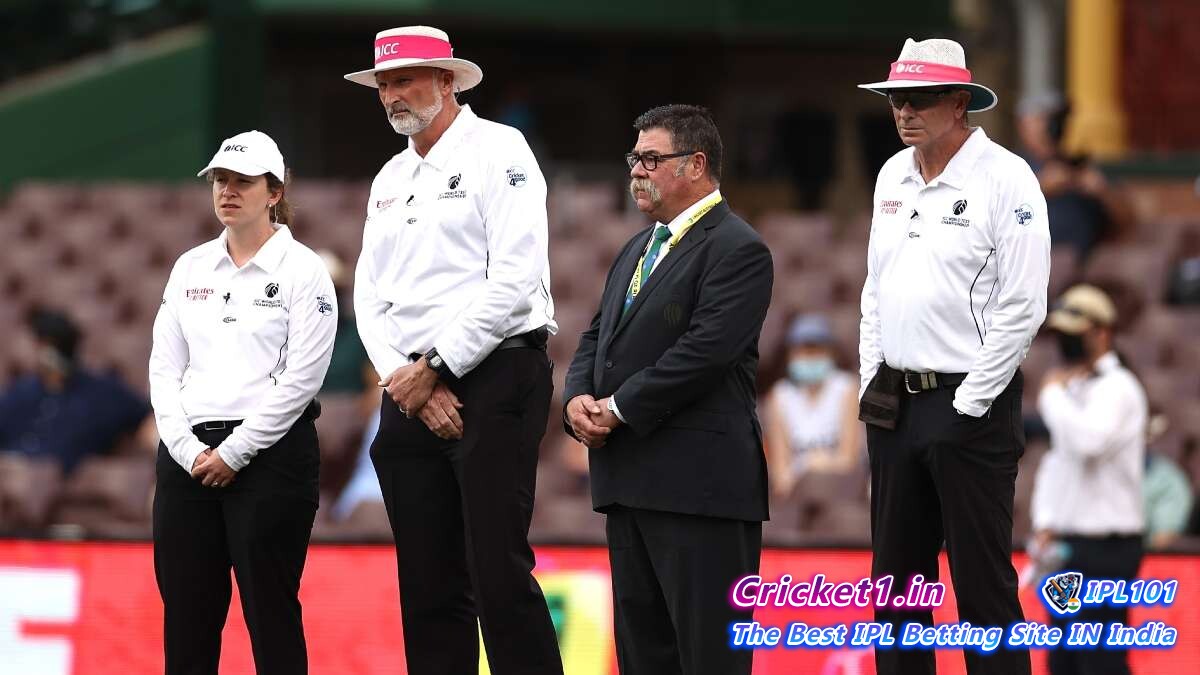
In a momentous stride towards gender equality in sports, the International Cricket Council (ICC) has unveiled groundbreaking measures to ensure payment equality between male and female match officials. The decision was reached during an influential meeting in Ahmedabad, marking a significant milestone in the council’s ongoing commitment to fostering an environment of parity in cricket.
Starting January 2024, female ICC officials will receive the same match fees as their male colleagues, irrespective of whether they are officiating men’s or women’s matches. This move challenges the longstanding disparities within sports officiating and is a critical step forward in recognizing the professionalism and skills women bring to cricket.
Currently, the presence of female umpires in international cricket is limited, with a sharper decline observed when considering their involvement in men’s games. This reality was exemplified when Claire Polosak made history in 2021 as the first female umpire to officiate a men’s international game during the Test match between India and Australia in Sydney. The ICC’s new directive not only applauds such accomplishments but also lays down a foundation for future generations of female officials to ascend to the highest levels of international cricket.
In line with the holistic approach to gender equality, the ICC also announced that neutral umpires will now be integrated into women’s championship matches. This practice aligns women’s cricket with men’s, where neutral umpires have been mandatory since the onset of the coronavirus pandemic, underscoring the ICC’s dedication to consistency and fairness across formats.
The gathering in Ahmedabad was ripe with significant pronouncements beyond the realm of pay parity. Sri Lanka Cricket (SLC) has, for the moment, lost its hosting rights, and the suspension will continue pending further review. In contrast, South Africa was confirmed as the host for the men’s Under-19 World Cup, scheduled from January 13 to February 2024 – the third time the country is set to welcome the esteemed event.
Another critical decision made during the meeting pertains to the eligibility of transgender athletes in the sport. In a move aimed at preserving the safety and integrity of the women’s game, the ICC has placed a temporary ban on transgender players who have undergone male puberty from participating in women’s international matches. This decision is not absolute, with the council committing to a review in the forthcoming years to assess the evolving landscape of the sport and the broader implications for inclusivity.
Furthermore, the ICC has outlined the introduction of a stop-clock in the men’s game, set to take effect from December 2023 through April 2024. The goal is to ensure a swift and timely completion of overs. Should teams fail to start a new over within 60 seconds after the prior one, they will be subject to two official warnings followed by a five-run penalty if the offense is noted for a third time. This system underscores the ICC’s focus on enhancing game pace and efficiency.
The Ahmedabad meeting has set a transformative tone for the future of cricket, fittingly reflecting the sport’s evolution and its governing body’s resolve to confront and amend traditional norms. The pioneering decisions encapsulated within these announcements will be closely monitored as they unfold on pitches and in boardrooms worldwide. Not only do they bolster the stature of the women’s game, but they also inspire a generation of athletes, officials, and enthusiasts with a bold vision for an inclusive, equitable future in sports.

